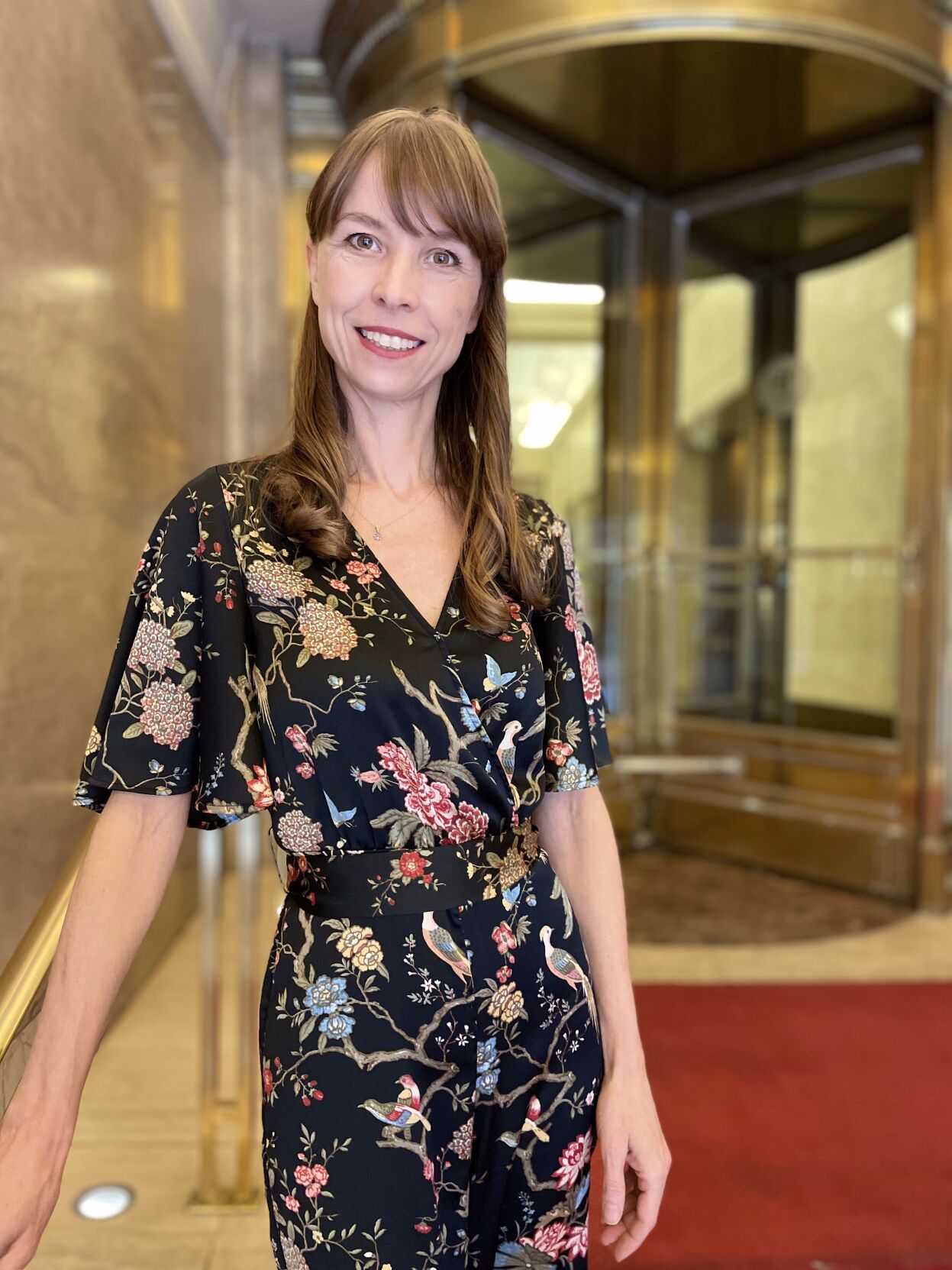
Author Nita Prose says writers take tiny nuggets from reality and turn them into fiction.Â
Silvana MuscioI’ve been an editor for most of my professional life, though in the past few years, I’ve turned to “the other side.”
I’ve become a novelist, penning “The Maid” and “The Mystery Guest,” two books in a loose series. As an editor and now as a novelist, I’ve studied readers, examining what draws them to certain novels and their creators.
Paradoxically, readers of novels are fascinated by the very thing we associate with non-fiction rather than fiction: the truth. They want to know: what has the writer borrowed (or outright stolen) from reality to create something fictional? What about this novel is derived from fact? Are novelists’ books thinly veiled versions of their lives? Are writers thinly veiled versions of their characters?
Novelists who draw heavily from reality are the ones most loath to talk about the truth in their fiction. After all, if Bestselling Author X tells Uncle Joe łó±đ’s the inspiration for the philandering con man in his latest mystery, it’s going to make for a rather uncomfortable Christmas dinner. But then there are the rest of us novelists who draw from reality more obliquely and subconsciously and yet, in the end, the fiction in our books can cleave closer to the truth than any hard facts from the real world.
I’ll offer an example. Years ago, I used to pass the King Edward Hotel every day on my way to work. Out front was a stately doorman dressed in a cap and great coat. Every day when I walked by, he would tip his cap at me and I would smile back at him. Over the years, I watched him deal with drunken rock stars emerging from limos and scowling tycoons blowing cigar smoke in his face.

Nita Prose took inspiration for a character in her two novels from the King Edward Hotel and a stately doorman she used to pass on her way to work.
É«É«Ŕ˛ Star file photoWe never exchanged words but, for some reason, I felt I knew this man; I imagined how lucky you’d be if he were your grandfather. And so, as a novelist, when I turned my hand to fiction, I plucked this stranger from reality and turned him into Mr. Preston, the dignified hotel doorman in both of my novels. I developed his backstory and gave him a young hotel maid to look out for the way I hoped he’d been looking after me in real life every day that I passed him on my way to work.
So there it is: this is how a novelist takes a tiny nugget from reality and turns it into fiction. Where the truth ends and the fiction begins, I no longer know, because the character I created feels more real to me than the true-to-life person who inspired him. This is something novelists get used to, that an invention becomes more real than the truth. But let’s just say it took me a while to get comfortable with that notion.
I dedicate my debut novel to my mother, Jackie. She was a living and breathing person. She was also a wildly imaginative storyteller. If you’ve seen the movie “Big Fish,” starring Ewan McGregor and Albert Finney, you have (in a way) met my mother. The film features an estranged son whose father is dying. The father has always told tall tales about himself, which enrages his son. All the son wants is an iota of truth — a cold, hard fact about his father’s life — but he never gets that. Instead, his father aggrandizes his own life story with myths, metaphors and allegories.
When I first saw that film years ago, I thought, “That father is my mother. And that son is me!”
My mother’s penchant for passing off totally unbelievable stories as truth used to infuriate me, especially when I was a teenager. She’d tell me some story about the town she grew up in and how a girl drowned in the river behind her house but came back to life two days later recognizing no one and speaking with a foreign accent. Then there was the day she mistook a skunk for a cat, picked it up by the tail and brought it right into her kitchen. One of her favourite stories, though, was about a pig she claimed she rode to school every day through the deep snow in northern Quebec.
“Mom, you ł¦˛ą˛Ô’t possibly think I believe any of this,” I used to say every time she began one of her ridiculous stories.
“Włó˛â ł¦˛ą˛Ô’t it be true?” she’d reply. “Give me one reason.”
“Because it’s far-fetched. Because you make things up. Just admit it, Mom,” I’d insist.
But she would never admit such a thing. Instead, she’d embellish with further fantastical details: how the drowned girl’s hair turned from blond to black when she came back to life; how the skunk winked at her when she let it go in the forest; how the pig’s name was Eugette and it was eventually added to the teacher’s morning roll call.
The angrier I got with my mother’s stories, the funnier she thought it was. Sometimes, I’d be so fuming mad that I’d accuse her of being a liar, which she didn’t like at all.
When my mother died a few years ago, I asked my no-nonsense aunt about my mother’s penchant for making things up, fully expecting my aunt to commiserate with me about my mother’s annoying bad habit. I brought up the ridiculous story about my mother riding a pig to school.
“You mean Eugette,” my aunt replied.
I couldn’t believe what I was hearing. “Please tell me it wasn’t true,” I said. “Please admit that Eugette wasn’t real.”
â€ÂŮłó±đ was real,” my aunt said. “Not everything your mother said was true, but that was. Eugette was a smart animal, easily trained. She became quite popular with the schoolchildren … but not so much with the teachers.”
This is how I discovered that while not all of my mother’s outrageous claims were true, some were not entirely made up. That left an important door open in my mind, one that I’ve left open ever since. I no longer find the blurred line between fact and fiction as troubling as I once did, and an appreciation of this opacity is one of my mother’s greatest gifts to me.
In “The Sign of Four,” one of Arthur Conan Doyle’s early novels, Sherlock gets testy with Watson because łó±đ’s not investigating the crime scene using the tried-and-true method Sherlock has taught him: “Once you eliminate the impossible,” he tells Watson, “whatever remains, no matter how improbable, must be the truth.”
I spent years trying to eliminate the impossible in my mother’s stories and yet, as a writer, I do what all writers do, which is exactly the opposite: I expand the possible. I construct a believable possibility — otherwise known as fiction — around the tiniest fragments of truth. And yet somehow, that which is invented, that which is not fact, will sometimes magnify and illuminate the truth. And therein lies the great truth about fiction: that fiction is truth, too.




























To join the conversation set a first and last name in your user profile.
Sign in or register for free to join the Conversation